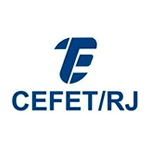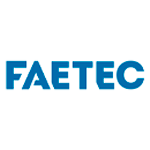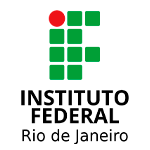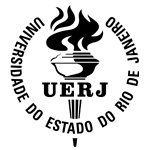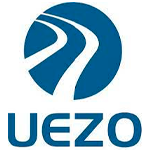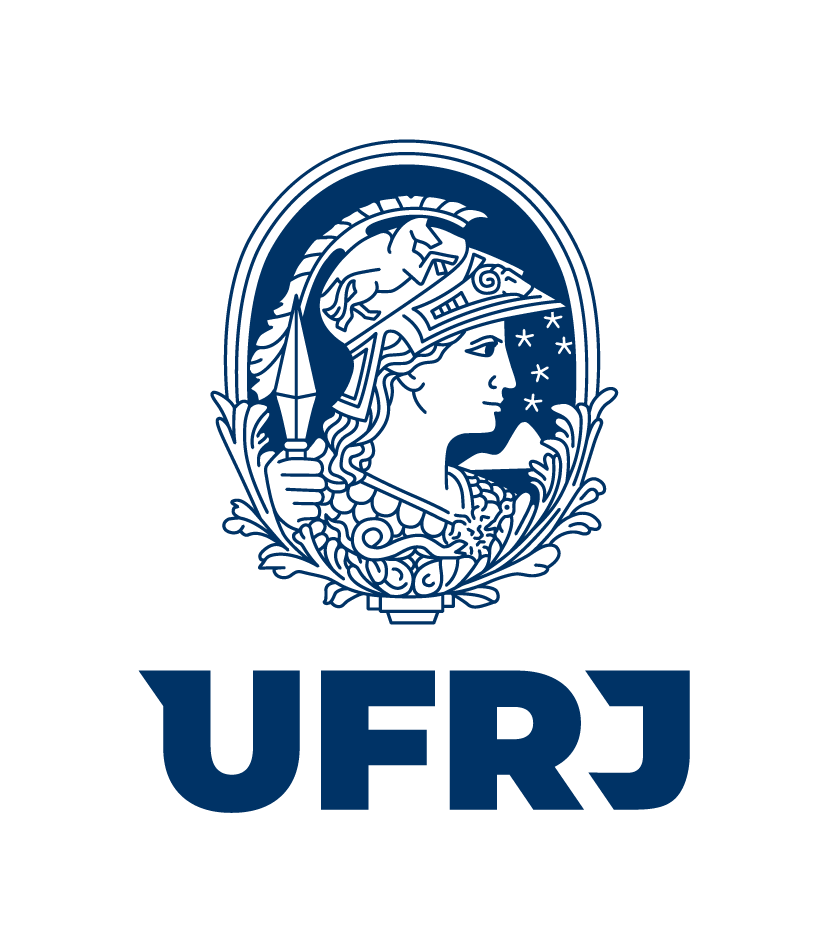Análise de Redes Sociais: Mapeando Relações entre Pesquisadores nos 13 Anos da Revista EaD em Foco
DOI:
https://doi.org/10.18264/eadf.v14i1.2284Palavras-chave:
Autoria e Coautoria, Autoria e coautoria, Educação a distânciaResumo
A aprendizagem a distância refere-se ao modo de aprendizado em que alunos e docentes estão fisicamente separados, utilizando tecnologia e ferramentas digitais para participar de atividades educacionais e interagir virtualmente. A revista 'EaD em Foco' ganhou relevância na promoção do debate acadêmico em torno do tema, compartilhando pesquisas, influenciando perspectivas, apontando os desafios e direcionando para os avanços no cenário da Educação a Distância. O trabalho proposto apresenta uma análise cientométrica ao longo dos últimos treze anos das publicações desse periódico, objetivando revelar uma perspectiva abrangente sobre sua influência no âmbito da Educação a Distância. Para tanto, realizou-se uma abordagem quali-quantitativa e uma análise de redes sociais, a qual visa modelar e sustentar uma discussão sobre autoria e (co)autoria em trabalhos entre pares e grupos de pesquisa. A partir disso, exploramos desafios e tendências futuras, oferecendo um roteiro para outras pesquisas, fazendo considerações de ordem política e discutindo a evolução da Educação a Distância no Brasil.
Palavras-chave: Autoria e coautoria. Educação a distância. Estudo cientométrico.
Downloads
Referências
ABAZI-BEXHETI et al. Research on VR/AR integration in education. 2022. 45th Jubilee International Convention on Information, Communication and Electronic Technology (MIPRO). Opatija, Croatia, 2022, p. 563-567.
ACHAR, C.; WUKKADADA, B. Blockchain Enabled Applications in the Education Domain and Potential Challenges. 2023. Somaiya International Conference on Technology and Information Management (SICTIM). Mumbai, India, 2023, p. 73-77.
ANDRIEU, G.; DALMAY, C. About compensation arrangements of teachers involved in e-learning trainings. 2021. International e-Engineering Education Services Conference (e-Engineering). Petra, Jordan, 2021, p. 98-99.
COELHO, N. N. As novas tecnologias no ensino da geografia: sua importância no processo de ensino-aprendizagem. 40f. Monografia. UFCG/CFP, 2023.
BASTIAN et al. Gephi: an open source software for exploring and manipulating networks. In: International AAAI Conference on Weblogs and Social Media. 2009. volume 8, p. 361–362, Menlo Park, California. The AAAI Press.
BLONDEL et al. Fast unfolding of communities in large networks. Journal of Statistical Mechanics: Theory and Experiment. 2008. (10):1–12.
CAMARGO, S. S.; BRUM, L. M. L.; PINHO, L. B. ERAD/RS: Uma visão histórica de autores e redes de colaboração. In: Anais da 19a Escola Regional de Alto Desempenho da Região Sul, 2019, volume 1, p. 87–94, Três de Maio, RS.
CAMARGO, S. S.; CAMARGO, S. L. T. 20 anos da revista do CCEI: Um panorama de autores e comunidades de coautoria. 2018. Revista do CCEI, 23(38):1 – 15.
DUNAI et al. Hybrid and Online Learning during Covid-19; a show case study of Universitat Politecnica de Valencia. 2022. IEEE 9th International Conference on e-Learning in Industrial Electronics (ICELIE), Brussel, Belgium, 2022, p. 1-6.
FERNANDO, E.; SURJANDY, T. Factors Influence the Success of E-Learning Systems for Distance Learning at the University. 2020. International Conference on Information Management and Technology (ICIMTech), Bandung, Indonesia, 2020, p. 294-299.
FERREIRA et al. A Gestão do Conhecimento e a Análise de Redes Sociais: um estudo aplicado no Sistema de Bibliotecas da Universidade Federal de Goiás. Informação & Sociedade: Estudos, v 27, n.2, 2017.
FREEMAN, L. C. The Development of Social Network Analysis: A Study in the Sociology of Science. 2004. Vancouver, BC, Empirical Press.
GAO, L. Management of Online Education Based on Blockchains. 2020. International Conference on Modern Education and Information Management (ICMEIM), Dalian, China, 2020, p. 84-89.
HAJARIAN, M.; DIAZ, P. Effective Gamification: A Guideline for Gamification Workshop of WEEF-GEDC. Madrid Conference, 2021 World Engineering Education Forum/Global Engineering Deans Council (WEEF/GEDC), Madrid, Spain, 2021, p. 506-510.
HIGGINS, S. S.; RIBEIRO, A. C. A. Análise de redes em Ciências Sociais. Brasília, Enap, 2018.
LEVENSHTEIN, V. I. Binary codes capable of correcting deletions, insertions, and reversals. 1966. Soviet Physics Doklady, 10(8):707–710.
LI et al. The global research collaboration of network meta-analysis: a social network analysis. Hayasaka S, editor. PLoS ONE. 2016. 11: e0163239.
LIM et al. Developing a Framework for the University-Wide Implementation of Micro-Credentials and Digital Badges: A Case Study From a Malaysian Private University. 2018. IEEE 4th International Conference on Computer and Communications (ICCC), Chengdu, China, 2018, p. 1715-1719.
MARCHIORI, A. Maximizing coverage in low-power wide-area IoT networks. IEEE International Conference on Pervasive Computing and Communications Workshops (PerCom Workshops), Kona, HI, USA, 2017, p. 467-472.
MEC. Portal MEC. 2017. Disponível em: http://portal.mec.gov.br/component/content/article?id=12823:o-que-e-educacao-a-distancia - Acesso em: 03 jan. 2024.
MOKERESETE, M.; ESIEFARIENRHE, B. M. Botswana broadband policy and regulatory framework analysis: Issues and solution for improved service and user access. 2nd International Multidisciplinary Information Technology and Engineering Conference (IMITEC), Kimberley, South Africa, 2020, p. 1-7.
MORAN, J. M. O que é educação a distância. 2002. Disponível em: http://www2.eca.usp.br/moran/wp-content/uploads/2013/12/dist.pdf - Acesso em: 02 Jan. 2024.
MURTAZA et al. AI-Based Personalized E-Learning Systems: Issues, Challenges, and Solutions. In: IEEE Access, vol. 10, 2022, p. 81323-81342.
NEWMAN, M. E. J. Coauthorship networks and patterns of scientific collaboration. Proceedings of the National Academy of Sciences, 2004, 101(suppl 1):5200–5205.
PANGESTU et al. Evaluation of Collaborative Learning Tools Implementation to Improve Learning Quality in Higher Education. 2019. International Conference on Information Management and Technology (ICIMTech), Jakarta/Bali, Indonesia, 2019, p. 477-481.
RECUERO, R. Introdução à análise de redes sociais. Salvador: EDUFBA, 2017.
SAMPAIO et al. A Colaboração científica na pesquisa sobre coautoria: um método baseado na análise de redes. Perspectivas em Ciência da Informação. 2015. 20:79 – 92.
UMADEVI, V. Case study - centrality measure analysis on co-authorship network. Journal of Global Research in Computer Science, 2013, 4(1):67 – 70.
VON, B.; HALBACH, O. How to judge a book by its cover? How useful are bibliometric indices for the evaluation of “scientific quality” or “scientific productivity”? Ann Anat. (2011) 193:191–6.
YULIANA, O. Y.; PALUMIAN, Y. Gamification of Learning Management System Improves Students’ Engagement, Active Learning and Performance. 2023. 14th International Conference on Information & Communication Technology and System (ICTS), Surabaya, Indonesia, 2023, p. 62-66.
WANG et al. Discover community leader in social network with pagerank. Advances in Swarm Intelligence, 2013, p. 154–162, Berlin, Heidelberg. Springer.
ZHANG et al. A Case Study of Collaborative Mobile Learning in Large-size Classes. 2019. IEEE International Conference on Engineering, Technology and Education (TALE), Yogyakarta, Indonesia, 2019, p. 1-5.
Downloads
Publicado
Como Citar
Edição
Seção
Licença
Copyright (c) 2024 EaD em Foco

Este trabalho está licenciado sob uma licença Creative Commons Attribution 4.0 International License.
Todos os artigos publicados na Revista EaD em Foco recebem a licença Creative Commons - Atribuição 4.0 Internacional (CC BY 4.0). Todas as publicações subsequentes, completas ou parciais, deverão ser feitas com o reconhecimento, nas citações, da Revista EaD em Foco como a editora original do artigo.


